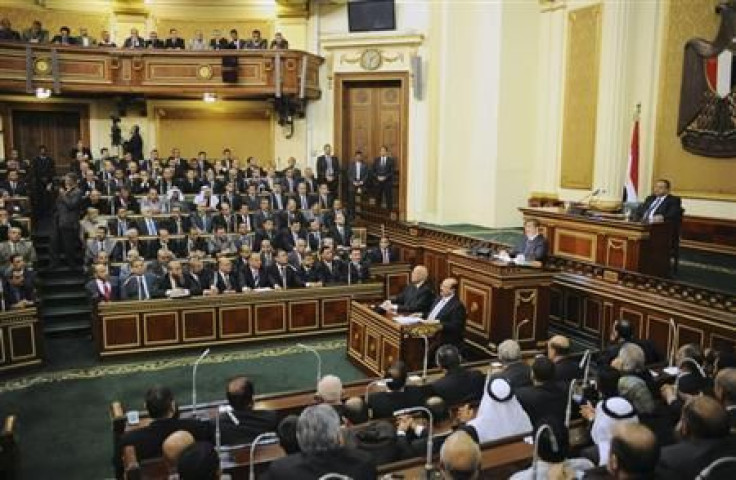Egypt's Supreme Court Rules Legislature, Constitutional Panel Illegal; Legislature To Continue Till 2014

A new ruling by Egypt’s highest court on Sunday declared the country's upper house of parliament and constitution panel illegal, dealing a serious blow to Islamist President Mohammed Morsi's government.
The Supreme Constitutional Court ruled that the law governing the elections to the upper house called Shura Council was unconstitutional. Elections to the Shura Council were held in January last year and the council is dominated by Islamists backing the Muslim Brotherhood.
However, the impact of the ruling is unclear as the court stopped short of dissolving the Shura Council or annulling the new constitution, despite the fact that the committee that set up the constitution was unconstitutional. The court also ruled that the Shura Council could continue functioning until a new parliament is elected.
The new constitution was drafted by a 100-member panel consisting of Morsi’s supporters and was signed into law by the President on Dec.26, 2012, after it was ratified in an all night parliamentary session. The new constitution was approved in a referendum held in two rounds in December 2012 with just 33 percent of voters taking part in the process.
According to the opposition parties, the constitution drafted by the Islamists restricts the freedom of expression and gives the Islamic clerics a say in legislation. They say the court ruling underscores their concerns and depicts how the last election results were tainted.
"We are paying dearly for the legislative and constitutional absurdity of the Muslim Brotherhood," a prominent commentator and Brotherhood critic Abdullah el-Sinawy told Associated Press. "It is a situation that threatens political problems and dilemmas on the road ahead."
Morsi’s supporters claimed that the court’s ruling acknowledged the Shura Council’s legitimacy as it did not straightaway repeal it and further upheld the upper house’s right to act as a law-making body in the absence of a lower house, as mandated in the new constitution.
"The ruling turns the page of media controversy over the Shura Council and the constitution," Brotherhood spokesman Ahmed Aref told AP. "We hope that we never see that page again."
"The Shura Council is continuing to play its complete legislative role until the institutions of the state are completed and legislative power passes to the new parliament," Reuters quoted Morsi as saying in a statement.
The court’s ruling, according to the political observers does not favor the ruling party or the opposition and could flare up tensions.
"If the Shura Council still has legislative authority, then this is a moral blow but not a legal one," Nathan Brown, a George Washington University professor and expert on Egypt told Reuters.
Egypt is in a political turmoil since 2011, following the ouster of Hosni Mubarak, and the country has been without a lower house of parliament since the middle of last year, following court orders that lead to its dissolution on similar grounds.
© Copyright IBTimes 2024. All rights reserved.












